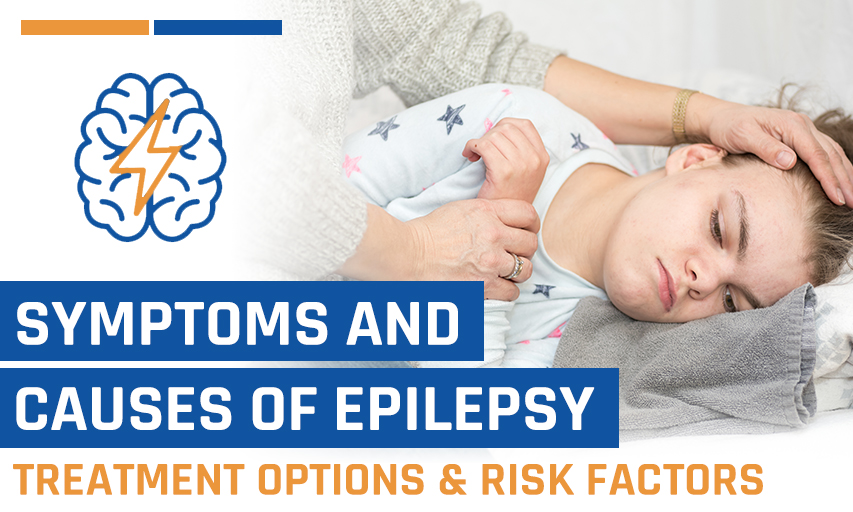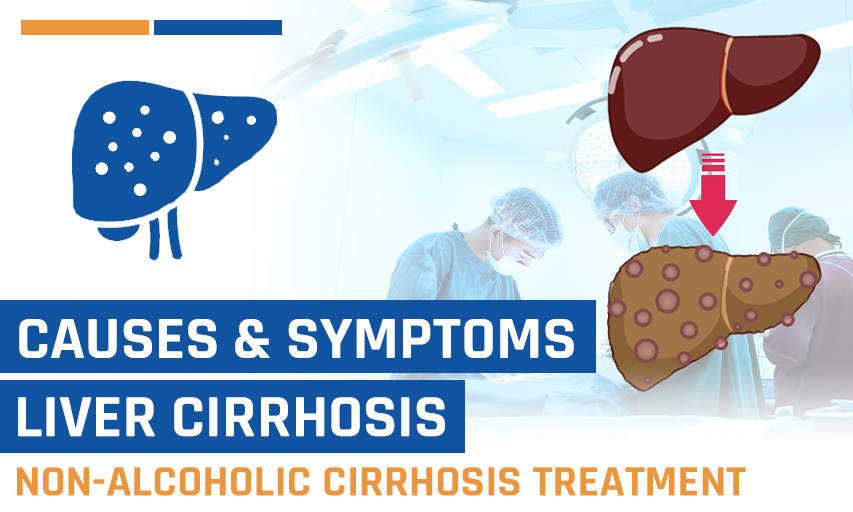5 Epilepsy Causes, Symptoms and Treatments for Complete Cure
Epilepsy is a neurological condition that affects over 50 million people around the world. While there is no complete cure for epilepsy in the traditional sense, certain treatments can help manage and control the condition.
Out of the countries most affected, Africa also carries the burden of epilepsy, with approximately 366,000 people diagnosed, with 37% being children under 18. However, a large number of cases remain undiagnosed due to a lack of awareness about the causes, symptoms, and treatment of epilepsy.
This limited awareness, combined with the social stigma surrounding the epilepsy disease, leads people to ignore treatment. As a result, many cases go untreated until the condition becomes too severe to manage. Other factors, like financial constraints and long waiting periods, also restrict people from getting proper epilepsy treatment.
This leads to a number of Africans travelling to other countries for affordable medical treatments. India is one of the most visited countries by patients from African nations for these treatments due to its affordability, availability of highly experienced doctors, and advanced infrastructure. India is a top choice to get your epilepsy treatment done since it offers high-quality treatment, including epilepsy surgery, with skilled doctors, advanced technology, and lower costs compared to countries like Ethiopia, Nigeria, Sudan and Kenya. India boasts highly experienced doctors as well as an impressive success rate that makes it an attractive option for international patients needing effective seizure management.
This blog will help you understand the epilepsy causes, symptoms and treatment along with why India might be the best epilepsy treatment option for you.
What are the 5 Causes of Epilepsy?
Epilepsy is a neurological disorder marked by abnormal electrical activity in the brain that leads to recurring seizures. It can affect people of all ages and backgrounds, and often, the exact cause remains unknown. However, medical research has identified some potential causes of epilepsy. These are:
1. Genetic Factors:
Some forms of epilepsy are inherited and linked to genetic mutations. A family history of epilepsy increases the likelihood of developing it. Certain genes may affect how brain cells communicate, making someone more prone to seizures. Genetic testing can sometimes help identify these risk factors, especially in childhood epilepsy.
2. Head Injury or Trauma:
A serious blow to the head from accidents, falls, or sports injuries can lead to the development of epilepsy. Traumatic brain injuries can damage brain tissue, disrupt normal electrical activity and result in seizure disorders. Such damage is one of the most common causes of epilepsy in young adults.
3. Brain Conditions:
Conditions that affect the structure or function of the brain, such as brain tumors, strokes, or blood vessel malformations, are also a cause of epilepsy. Stroke is the leading cause of epilepsy in older adults. These conditions interfere with brain activity and can create areas prone to seizure generation.
4. Infections:
Certain infections such as meningitis, encephalitis, or neurocysticercosis can cause inflammation and scarring in brain tissue. This can disrupt the normal brain function and lead to epilepsy, even after the infection has been cleared.
5. Prenatal or Perinatal Injuries:
Injuries to the brain before or during birth which are caused by factors such as oxygen deprivation, poor maternal nutrition, or infections during pregnancy can result in epilepsy later on in life. Premature birth and low birth weight are also associated with higher risk due to increased vulnerability of the developing brain.
What are the 5 Symptoms of Epilepsy?
Epilepsy presents itself through recurring seizures. While symptoms can vary depending on the type of seizure a person experiences, there are several common epilepsy symptoms to watch out for:
1. Muscle Stiffness or Rigidity:
During certain types of seizures, especially tonic clonic seizures, the muscles suddenly become stiff or rigid. This can cause the person to fall or lose balance and last for several seconds.
2. Psychic Symptoms:
Some people experience unusual emotional or sensory symptoms before or during a seizure. These include sudden feelings of fear, anxiety, dread, or even sensations of déjà vu. Focal aware seizures, also known as auras, often exhibit these symptoms.
3. Epileptic Stare:
Absence seizures, which are more common in children, often cause a person to stop what they’re doing and stare blankly into space for a few seconds. They appear as though they’re daydreaming, but they won’t respond when spoken to.
4. Loss of Awareness or Consciousness:
Many seizures cause a temporary loss of awareness or full unconsciousness at times. The person may appear confused, disoriented, or unresponsive. This can last from a few seconds to several minutes.
5. Uncontrolled Movements or Muscle Jerking:
Uncontrolled movements can include sudden and involuntary movements like twitching, jerking of the arms or legs, or full-body convulsions. Some seizures can also cause a sudden loss of muscle tone, which can lead to falls or head drops.
What are the Options for Epilepsy Treatment in India?
India has made significant progress in understanding the epilepsy disease, its causes, symptoms, and treatments, and offers a range of advanced and cost-effective options for patients. Compared to African and certain high-end countries, epilepsy treatment in India is more affordable and widely accessible, including both medical and surgical interventions.
The hospitals in India are top-tier, providing world-class epilepsy treatments with experienced neurologists and neurosurgeons using the latest technologies. Some of the most-preferred Epilepsy treatment options in India are:
1. Laser interstitial thermal therapy:
Laser interstitial thermal therapy is a minimally invasive surgical technique that uses targeted laser heat to destroy seizure-causing brain tissue. It has a quicker recovery time and fewer complications compared to traditional surgery.
2. Stereotactic EEG-guided laser ablation:
This procedure combines EEG mapping with precision laser technology to locate and ablate the exact brain areas that are causing seizures. It is especially helpful for patients whose seizure origins are hard to localise.
3. Temporal Lobectomy:
One of the most common epilepsy surgeries, a temporal lobectomy involves removing the part of the temporal lobe from where seizures originate. This provides long-term seizure control for patients with focal epilepsy.
4. Hemispherectomy:
Hemispherectomy is a rare but effective procedure in severe cases, especially in children, where one hemisphere of the brain is responsible for seizures. It involves removing or disconnecting the affected hemisphere.
5. Corpus Callosotomy:
In this procedure, the corpus callosum, which is the bundle of nerves connecting the two brain hemispheres, is severed to prevent the spread of seizures from one side of the brain to the other. It is used for patients with drop attacks or generalised seizures that don’t respond to medication.
What are the Risk Factors for Epileptic Attacks?
While anyone can experience a seizure under certain conditions, some people have a higher risk of developing epilepsy or experiencing epileptic attacks. Risk factors don’t directly cause epilepsy, but they increase the chance of seizures occurring, especially in patients who already have an underlying neurological vulnerability. The most common risk factors for epileptic attacks are:
1. Missed Medication:
Missing your anti-epileptic medication is one of the leading causes of breakthrough seizures. Even one missed dose can lead to increased seizure activity and, in some cases, can trigger status epilepticus, which is a dangerous and potentially life-threatening condition. If you forget a dose, take it as soon as you remember, unless it’s almost time for the next one. Never double up unless advised by your doctor.
2. Lack of Sleep:
Sleep helps regulate brain activity. Sleep deprivation is a well-known seizure trigger, and people with epilepsy can experience disrupted sleep patterns. Interestingly, while seizures can disturb sleep, insufficient rest can, in turn, provoke more seizures, in turn creating a vicious cycle. Adults aged 18–64 should get at least 7 to 9 hours of sleep per night. Note that some antiepileptic medications can also contribute to insomnia, so consult your doctor if you're struggling with sleep.
3. Stress:
Chronic stress can have several negative physical effects, such as increased risks of headaches, insomnia, heart disease, and diabetes, and for many patients suffering from epilepsy, stress can also be a triggering factor for seizures. While the exact mechanism is unclear, stress can also lead to hyperventilation, anxiety, and abnormal brain activity, all of which are provoking factors for seizures. Learning to manage stress through mindfulness, therapy, or consultation with a mental health professional is strongly recommended.
4. Alcohol:
While moderate drinking is unlikely to cause seizures, excessive alcohol consumption can be a trigger. Excessive drinking can lead to withdrawal symptoms, and even if you don't experience seizures while drinking, you may still be at a risk later on. Be mindful of your alcohol consumption, as epilepsy medications often tend to lower alcohol tolerance.
5. Common Cold, Sinus or Flu:
Even minor illnesses like a cold or the flu can stress your body, making it more susceptible to seizures. Fever, dehydration, and general physical discomfort can all increase seizure activity. This illness often also disrupts sleep, which is another major trigger factor. During any illness, it’s important to stay hydrated, rest adequately, and monitor your condition closely.
Can Epilepsy be Completely Cured?
Epilepsy is a neurological disorder that affects over 50 million people worldwide. While it currently has no permanent cure, long-term seizure control is possible with the right treatment. In some cases, especially among children, people may grow out of epilepsy over time.
For many patients, antiepileptic medications can reduce or completely eliminate the onset of seizures. However, many patients, particularly those with drug-resistant epilepsy, do not respond well to medication alone. In these cases, surgeries and other advanced treatment techniques can offer hope for better outcomes.
Researchers around the world continue to study the causes, symptoms, and treatment of epilepsy to develop more effective medications and surgical solutions. While epilepsy cannot yet be cured in the sense of being permanently eliminated, it can be successfully managed, and in many cases, patients can live seizure-free for years or even a lifetime.
In present times, India is one of the best countries for getting epilepsy treatment due to its advanced medical infrastructure, highly skilled specialists, and affordable care. With a range of treatment options, from medication to surgery, many patients have achieved improvements in their quality of life.
Why Choose Epilepsy Treatment in India?
India is one of the best countries for getting affordable, advanced, and effective epilepsy treatments worldwide with high success rates. Patients from African countries like Kenya, Ethiopia, and beyond are increasingly choosing India not only because of the lower costs but also for its world-class medical care, which is provided by highly trained neurologists and neurosurgeons.
■ Advanced Medical Infrastructure:
India is home to some of the most technologically advanced hospitals and epilepsy centres in Asia. These are equipped with advanced diagnostic tools such as high-resolution MRI, video EEG monitoring, PET scans, and minimally invasive surgical systems that match or exceed international standards.
■ Highly Experienced Specialists:
Neurologists and neurosurgeons in India are globally recognised for their expertise in managing complex epilepsy cases. Many have received training and certifications from top institutions in the USA, U.K., and Europe. They hold expertise in both medication management and advanced surgical techniques such as laser ablation, lobectomy, and hemispherectomy.
■ Cost-Effective Epileptic Care:
One of the biggest advantages of getting epilepsy treatment in India is its affordability. Medical procedures in India can cost 50–70% less than in many Western countries and even neighbouring nations, without compromising on quality. Treatment costs here range from around $3,000 to $18,000, depending on the complexity of the case.
■ Comprehensive Treatment Options:
Whether you're looking for medical management, surgical intervention, or second opinions, India offers a full spectrum of care. From drug therapy and lifestyle counselling to complex surgeries like temporal lobectomy or corpus callosotomy, your epilepsy treatment with CureIndia will be personalised to suit each patient’s needs.
■ Shorter Waiting Times:
In countries with public healthcare systems, patients oftentimes face long wait times for neurological evaluations or epilepsy surgeries. In India, most hospitals schedule diagnostic procedures and surgeries quickly, leading to faster diagnosis, treatment, and recovery.



















Be First To Comment
Leave a Comment